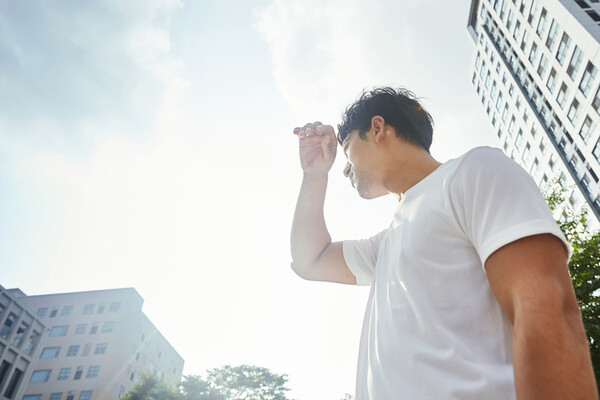[Jeong Jae-hoon's Column on Food & Drug]
Excessive outdoor activity in hot and humid conditions is dangerous. Sweating profusely can cause muscle cramps, weakness, and fatigue due to water and salt loss. If the body loses its ability to regulate temperature due to extreme heat, it can lead to heat stroke, which can cause serious damage to the heart, liver, kidneys, and intestines. Moreover, there's no cure for this type of heat illness. Antipyretics inhibit the production of a substance (prostaglandin E2) in the hypothalamus that signals the body to raise its temperature. This is how fever, caused by infections or inflammation, is controlled and the body temperature returns to normal.

However, this is not the case with heat exhaustion or heat stroke. The body's ability to cool down is not functioning properly. When the body overheats, the only way to cool down is through sweat, but sweating doesn't help much in high humidity. Instead of evaporating, sweat drips down. It's an emergency because blood needs to be sent to the skin to cool it down and then remove heat from the internal organs, but the skin temperature itself can't cool down. This is why it's even more uncomfortable on a sticky summer day. In this situation, the body tries to cope by sweating more and increasing the peripheral blood supply. As a result, blood pressure drops, causing more people to complain of dizziness on hot days. The risk of collapsing due to orthostatic hypotension also increases, so you should be careful when getting up from sitting or lying down.
If you're taking diuretics, blood pressure medications, antipsychotics, or antidepressants, you may be more vulnerable to the heat. These medications can promote dehydration or affect your ability to sweat, making it harder to regulate your body temperature. This doesn't mean you should stop taking your medication, which is dangerous in itself. The wiser course of action is to make sure you don't overheat in hot weather.
There's no cure for a heat wave, but fortunately, you can physically cool yourself down. Drink plenty of water to stay hydrated and avoid being outdoors on hot days. If possible, limit your outdoor activities to times when temperatures are lower, such as early in the morning and at night. When you go out, dress lightly, wear a wide-brimmed hat, and take frequent breaks in the shade. Water, shade, and rest are essential for those who must work in the heat. Employers have a duty to allow people to wear comfortable clothing to work and to follow heat safety tips in outdoor workplaces.
Indoors, you should turn on your air conditioner to keep the temperature and humidity comfortable. If you don't have air conditioning at home, find an air-conditioned public space or heat shelter to cool off. The true wisdom of surviving the heat is to look out for each other so that no one around you collapses.

Jeong Jae-hoon is a food writer and pharmacist. He covers a variety of subjects, including trends in food, wellness and medications. This column was originally published in Korean in Joongang Ilbo on July 4, 2024. – Ed.
Related articles
- [Column] A well-balanced diet matters, not a single food
- [Column] When is the best time to drink coffee in the morning?
- [Column] Medications that cause dry eyes
- [Column] Exercise lowers the risk of anxiety
- [Column] Why you should take fewer pills
- [Column] Does the apple cider vinegar diet work?
- [Column] Why eating microplastics is harmful
- [Column] The best ways to enjoy summer watermelon
- [Column] Why you shouldn't overeat on a hot day
- [Column] Olive oil and dementia mortality risk
- [Column] The science of cooking rice
- [Column] What you need to know about vitamin D
- [Column] Why it's good to eat cooked vegetables

